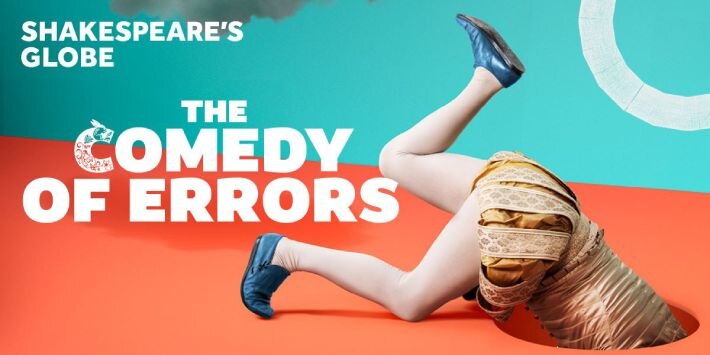
Amid all the nonsense, you find yourself falling for the idiots in one of Shakespeare’s earliest plays
By Tim Bano
When one character punches a dagger-wielding nun in a riotous brawl near the beginning of this production, you know you’re in for a good time.
Sean Holmes, associate artistic director of Shakespeare’s Globe, hasn’t done much to tinker with The Comedy of Errors, one of Shakespeare’s earliest and shortest plays. Instead he tunes into the silliness, and turns it up as far as it can go.
Though set in the Greek city of Ephesus, Holmes tosses us into Elizabethan London, recreating the world in which the play would have first been seen more than 400 years ago. It’s daft, bawdy, boisterous, and the codpieces are magnificent.
After an opening speech by Syracusan merchant Egeon, which sets up the story of two sets of identical twins separated at birth who then spend the rest of the play being confused for one another, with hilarious consequences etc etc, then comes a massive brawl (cue the nun) and from that point the slapstick never really stops.
Many productions have tried and colossally failed to find the humour in this play; you can sense directors and actors wincing at the 400-year-old jokes, desperately trying to bolster them with sight gags or high concept productions. Not here.
It’s so funny precisely because Holmes takes the text seriously. His excellent ensemble, featuring a few Globe newcomers alongside more practised hands, deliver a fantastically clear, zippy production as they don moustaches and dresses and get increasingly, hilariously annoyed at each other.
There’s strong stuff from Michael Elcock as Antipholus of Syracuse, whose voice gets higher as his exasperation grows, and from Matthew Broome as a joyless Antipholus of Ephesus (yes, the identical twins have the same name), but really it’s their servants, Dromio of Syracuse and Dromio of Ephesus (also twins, also same name) who make the show.
Dressed in lime-green doublets and puffy breeches, they look like the love-children of Baldrick from Blackadder and Kermit the Frog. Jordan Metcalfe’s Dromio scampers around joyously, while George Fouracres’s Dromio is hysterical in his incredulity as he keeps being beaten by his master for things he hasn’t done. When the two Dromios finally meet, the look of indignation on Fouracres’s face is priceless, like a cat astonished to see itself in a mirror.
There’s nothing to learn here, no comment on the human condition, and it’s pretty much just one joke – thinking it’s one twin when it’s actually the other – repeated over and over again. It’s not as deep or mature or sophisticated as a lot of Shakespeare’s later comedies, and in a less deft production these identikit characters could be puddle-shallow.
But under Holmes’s direction, amid all the nonsense, you find yourself falling for these idiots: in the final moments, when Dromio and Dromio are reunited, it’s surprising just how poignant it is to see them wander hand in hand into the darkness upstage.